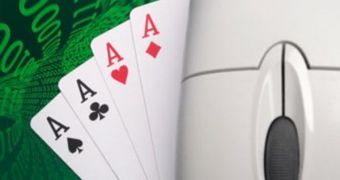There are very few people in the world studying the field of behavioral biometrics today, and there are even fewer those who do it well. It's a painstaking job, which requires its practitioners to go online around the clock and monitor online behaviors on sites such as those hosting poker games. Coordinated attacks on some websites are also analyzed, and the experts are trying to identify potential threats to society, or even criminals, by assessing their online behavior.
Over the past few years, the world has seen a sharp increase in the number of biometric devices used for analyzing a person's traits, or for determining the threat level they pose. Such apparatus can be seen today at all major airports, at border crossings, in some corporations, and even at the work place. It's estimated that, over the next five years, most recognition and surveillance software will be endowed with the ability to analyze a person's behavior on the spot, and to relay his or her threat level to a central authority in real-time.
However, the job those working in online behavioral biometrics have to do is far more complicated than having a computer scan people. It involves hours and hours of navigating through poker sites, for instance, and observing potential attempts of phishing (identity theft), which are not at all uncommon on these websites. Online casinos regularly ask the services of such experts on their pages, so as to avoid any potential threat to the relative fairness of the games.
On the other hand, financial institutions such as banks also benefit from the expertise these specialists have in the field of online behavioral analysis, and many have their own expert on the premises at all times. Larger banks are the target of phishing attacks on a daily basis, while they serve the interests of millions of people worldwide. In order to guarantee the safety of their belongings, they have to always be a step ahead of the bad guys.

 14 DAY TRIAL //
14 DAY TRIAL //